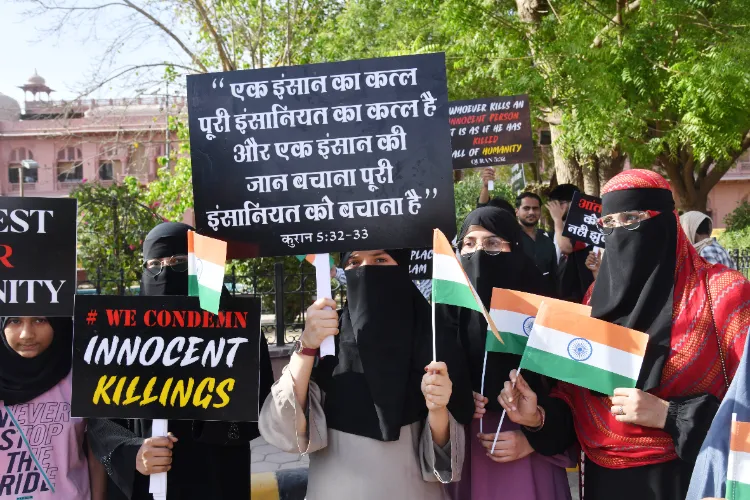
New Delhi/Islamabad
The diplomatic standoff between India and Pakistan intensified on Thursday as both countries took significant steps in the aftermath of the deadly terror attack in Jammu and Kashmir’s Pahalgam that claimed 26 lives, mostly tourists.
In Islamabad, Pakistan Foreign Secretary Amna Baloch convened a briefing for heads of mission and diplomats stationed in the capital to discuss the “evolving situation” following the attack. During the meeting, she presented the outcomes of the National Security Committee (NSC) meeting chaired by Prime Minister Shehbaz Sharif.
“She rejected the Indian misinformation campaign against Pakistan and said that such tactics would obstruct the path to peace and stability in the region,” the Foreign Office said in a statement. She reiterated Pakistan’s consistent position, saying that “Pakistan has always rejected terrorism in all its forms and manifestations". At the same time, she cautioned against “Indian attempts to escalate tensions” and reaffirmed “Pakistan’s readiness to counter any misadventure".
Pakistan also announced sweeping retaliatory measures that mirrored actions taken by India a day earlier. The government suspended the Simla Agreement and other bilateral accords with India, closed its airspace to Indian airlines, halted all trade and declared that any attempt by India to divert water meant for Pakistan under the Indus Water Treaty would be treated as an "Act of War".
Further measures included closing the Wagah border crossing, cancelling visas issued to Indian nationals under the SAARC Visa Exemption Scheme (SVES) and asking military advisers at the Indian High Commission in Islamabad to leave the country.
These steps came in response to India’s actions on Wednesday, when it suspended the Indus Water Treaty and downgraded diplomatic relations with Pakistan following the Pahalgam attack. The attack, which was claimed by The Resistance Front (TRF) — a proxy of the banned Pakistan-based Lashkar-e-Taiba — has sparked widespread outrage and diplomatic repercussions.
India informs Pakistan of its decision
On Thursday, India formally informed Pakistan of its decision to keep the Indus Water Treaty in abeyance with immediate effect, citing breaches by Islamabad. A letter from India’s Secretary of Water Resources, Debashree Mukherjee, to her Pakistani counterpart, Syed Ali Murtaza, stated, “What we have seen instead is sustained cross-border terrorism by Pakistan”, adding that such actions had created “security uncertainties” that impair India’s ability to fully utilise its rights under the treaty.
ALSO READ: We are united, take action: All-party meeting backs govt on Pahalgam attack
The Indus Waters Treaty, brokered by the World Bank in 1960, has long been viewed as a rare example of sustained cooperation between the two countries. However, both sides now appear to be moving away from the agreement amid rising hostilities.
As regional tensions continue to mount, the diplomatic fallout from the Pahalgam terror strike appears far from over, with both nations entrenching themselves in positions that signal a hardening of bilateral ties.
(With inputs from PTI)
